May 28, 2022
Lizzie Horvitz
Lizzie Horvitz is a sustainability expert who thrives on finding solutions to complex problems related to climate change and plastic pollution. With a decade of experience in both the non-profit and corporate sectors, she is the founder of Finch, a platform that incentivizes and educates consumers to make better decisions based on the climate and sustainability impact of their purchases. Lizzie’s passion for sustainability and her dedication to mitigating climate change make her a leader in the field.
One Line Life Lessons from Lizzie
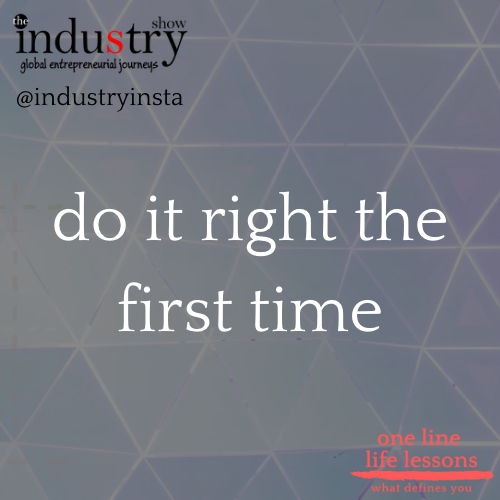
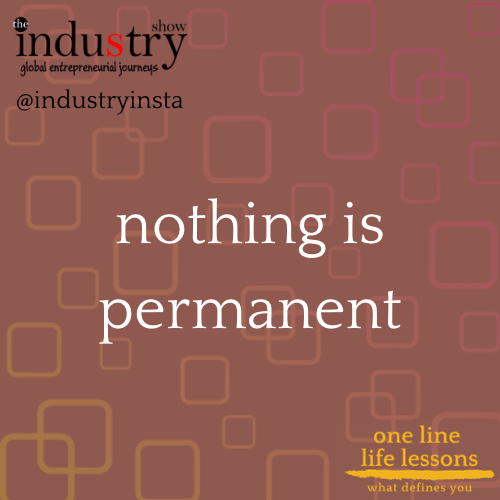
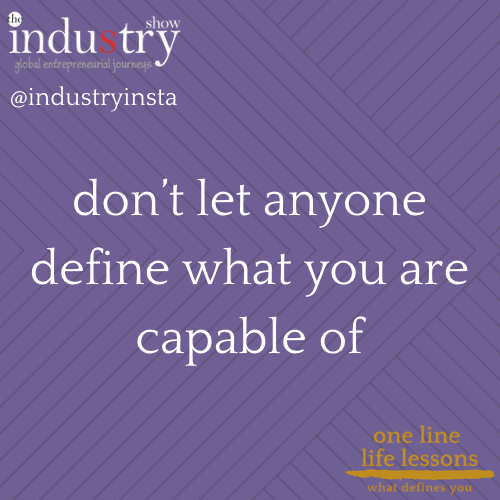
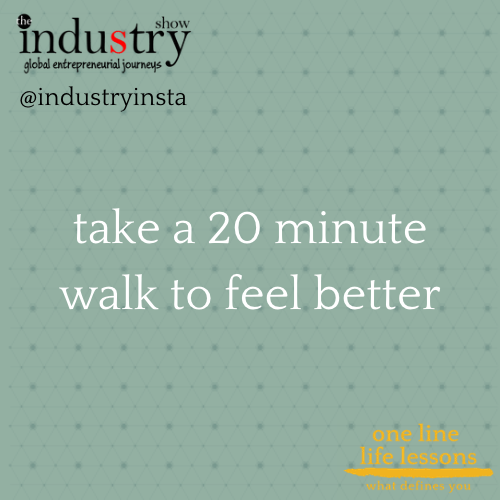
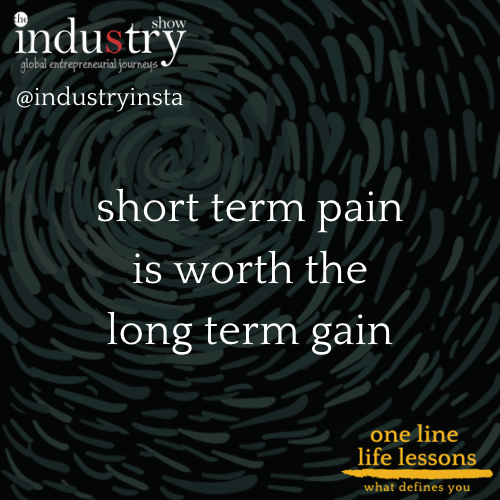
Episode Highlights
- 0:00 – Introduction to Lizzie Horvitz, CEO and founder of Finch, and her company’s mission to decode products’ environmental impacts.
- 1:25 – Evolution of Finch from a newsletter to a platform that evaluates products based on attributes like carbon footprint and ethical manufacturing practices using machine learning.
- 3:40 – Emphasis on the importance of timing in meeting consumer demand, particularly with Gen Z’s focus on environmental concerns.
- 5:10 – Challenges and successes of Lizzie’s entrepreneurial journey, including securing partnerships, raising funding, and plans for expansion.
- 7:30 – Anecdote about cold messaging the co-founder of Honey on LinkedIn, resulting in an investment within 15 minutes of their conversation.
- 9:15 – Highlighting the value of taking chances and the potential benefits of reaching out, encouraging others to pursue similar opportunities.
- 10:45 – Discussion of the idea that short-term pain is worthwhile for long-term gain and expressing gratitude to Lizzie for sharing her insights.
- 12:00 – Anticipation of Lizzie’s future success and her upcoming collection of life lessons.
Show Transcript
Transcript - Full Episode
Nitin Bajaj
Welcome to the industry show. I’m your host, Nitin Bajaj. And joining me today is Lizzie Horvitz. Lizzie, welcome on the show.
Lizzie Horvitz
Thank you so much for having me, Nitin.
Nitin Bajaj
Pleasure is all ours. So let’s start with who is Lizzie.
Lizzie Horvitz
I am the CEO and founder of Finch, which decodes products’ environmental impacts to help consumers make better purchasing decisions.
Nitin Bajaj
Now that we know a little bit about you, let’s play a little game. We call it the underrated, overrated. And, when you’re ready, I’ll throw maybe 8 or 10 themes at you that are impacting us as a community. So
Lizzie Horvitz
I’m ready.
Nitin Bajaj
Alright. Let’s do this. Let’s start with NFTs.
Lizzie Horvitz
Overrated.
Nitin Bajaj
Okay. Crypto.
Lizzie Horvitz
Overrated.
Nitin Bajaj
Real estate prices?
Lizzie Horvitz
Underrated.
Nitin Bajaj
- What about stock market prices?
Lizzie Horvitz
Underrated today.
Nitin Bajaj
That’s true. Let’s see. What about inflation?
Lizzie Horvitz
Overrated.
Nitin Bajaj
Great. The metaverse. Overrated. The great resignation?
Lizzie Horvitz
Oh, Underrated.
Nitin Bajaj
- And, cash.
Lizzie Horvitz
Underrated. K.
Nitin Bajaj
That was funny. What about, startup valuations?
Lizzie Horvitz
Startup valuations right now are, completely underrated.
Nitin Bajaj
- That was good. Thanks for playing along with me.
Lizzie Horvitz
Thank you.
Nitin Bajaj
Alright. Let’s get back to something more closer to you. Tell us about Finch. What is it? What is the the mission and vision behind it?
Lizzie Horvitz
So I started Finch because I have been in the sustainability space for my entire career. And in 2016, something interesting started happening where I began to get a lot of questions from family and friends about how they could reduce their own footprint and what the effects of certain products were. So things like, I just had a baby. What type of diapers are the best? Or how do I find a good deodorant without aluminum in it? And I didn’t know the answers, and I didn’t know where to point them towards. The content online was either heavily based in data, but really difficult for someone normal to understand Mhmm. Or, you know, easily accessible to the average person like a blog, but not based in any type of science. And so I wanted something that could sort of fit both where regular people could really understand their their footprint. And I started that as a newsletter just on the side of my full time job. Mhmm. And then right at the beginning of COVID, I realized that that newsletter could really become, my passion and something that I wanted to spend all my time doing. And that really was how Finch was born. We have evolved into this platform that helps consumers make better purchasing decisions. I think in the age of greenwashing and Mhmm. You know, affiliate partnerships, it’s really difficult to decipher what the real information is, and consumers deserve to have this data democratized. And right now, that’s not really happening, in a way that I’m happy with. And so Finch rates products based on a variety of attributes ranging from, you know, was this made in a country that used child labor to what’s the carbon footprint, etcetera, and then everything in between. We use machine learning to scrape information off of the public domain, and then each product gets a score between 110. And how this works in one way is you download an extension on Chrome, and when you’re shopping on Amazon, you type in a specific product, and we’ll show you that it gets a, say, 5 out of 10, which is not great, And here are 3 alternatives that are similar to that product, but better rated in case you wanna make a better purchasing decision.
Nitin Bajaj
And that’s personally very exciting to me, and I get your mission. And you did answer this, but I wanna be more put more emphasis on this. Why do this? I mean, it’s not something that’s easy to do. It’s also, you know, getting the data and and making sure it’s up to date. So tell us a little more about why do this and and why now?
Lizzie Horvitz
Why now is a really good question, and I think that that is pure luck. I never started I never thought about starting my own company. It’s a very personal decision of why now. I had the opportunity to go work for a startup as chief operating officer and just completely fell in love with everything about it and got totally caught the entrepreneurship bug. And so when I started this company, I thought, oh my gosh. I can’t believe that I’m so smart that I that I thought of this idea myself and that nobody has done this before. In reality, many, many people have tried and failed, mostly due to timing, to be honest. Even people that started this 3 or 5 years ago failed because mostly the world just wasn’t ready for it yet, and consumers were not craving this type of information. And then because consumers weren’t craving it, companies had no incentive to change any of their practices. And now it’s a completely different time where Gen z is increasingly being responsible for most of the buying power, and they care about more they care more about the environment than any other issue facing the planet according to a new a new, report from Deloitte.
Nitin Bajaj
Mhmm.
Lizzie Horvitz
And so because of this, you know, we’re at this inflection point where consumers are craving this and companies are not prepared to share this information because for so long they’ve been sharing data that just is inaccurate or, completely greenwashed. Right? This is eco friendly packaging or compostable when in reality, that’s not the case. And so I’m excited to really my end goal is to put Finch out of business and help companies so that any company that, that makes a product is reaching a certain level of sustainability already, and there aren’t good versus bad. Everything is sort of reaching that bare minimum, and everybody has access to the same information.
Nitin Bajaj
I love that. And I love your mission to put yourself out of business. Right? Especially when you’re doing something that’s in the interest of the consumers and good for the society. The conduit should turn itself out of business. So I love that. Tell us the give us a sense for the size and scale of your business.
Lizzie Horvitz
So right now, we are at a really interesting point. You know, I think for anybody who started a company before, they can probably relate. The first couple of years, honestly, is just preparing for this thing to happen. Right? You’re not coming out of the product within 2 weeks of starting or at least I wasn’t as a nontechnical person. Props to anybody who is. And so for so long, we were sort of planning and envisioning and doing all these things. And right now, we actually just got our 1st contract this this week that we’re signing. That’s our first real revenue generating partnership, which is so exciting. And I think from there, it will really just sort of snowball. And so we’ve we’ve gotten the first we had our first round of funding. We had $1,500,000. We are about to get our first, you know, hopefully, meaningful revenue. And then from there, we’ll raise our seed round in the fall and hopefully grow our team. So right now, there are 5 of us full time, around 6 or 7 of us part time. And we are you know, just in the United States, we only operate on Amazon, so we have a lot of growing to do in the next several months.
Nitin Bajaj
That’s awesome. I love how you counted yourself both in the full time and the part time.
Lizzie Horvitz
Yeah. I’m not no. No. No. I did not count myself in the part time. The full time is just, is me and then 4 others.
Nitin Bajaj
Tell us what’s your biggest challenge as a business?
Lizzie Horvitz
My biggest challenge as a business is probably that we only work for a certain amount of hours a day, if I’m being honest. I think it’s you know, there’s never when I first started this company, I thought any any entrepreneur who pulls all nighters is just showing off unnecessarily. It’s such an unhealthy habit and a way of living. And now I’m at that point where there’s there’s never a lack of things to do. Right? We could all be pulling all nighters and still not delivering things that we need to on time. And so I think it’s just those resource constraints of time and money. Mhmm. Making sure that, you know, it’s it’s not a novel answer, and I apologize for that. But that’s really the truth where we have everything we need. We just need more time to do it.
Nitin Bajaj
Yeah. Makes sense. And especially at this stage, like you said, being at that inflection point, just as a as a macroeconomic situation, but also for finding that traction and then now wanting to scale makes a lot of sense. On the other side of it, what’s the most exciting opportunity that you’re targeting?
Lizzie Horvitz
I would say, you know, this this first revenue is really exciting because this we’re talking to a very well known company who essentially will integrate our ratings in their back end because these companies don’t have the resources to do that themselves as no matter how big they are. And so to have the sort of, to have the backing of a large company like this, I think, will really explode our marketing, our credibility, just a lot of opportunities there, which is something I’m really excited about. I think the other thing, is that I was lucky enough to be on the Today Show a couple of weeks ago, which was really fun.
Nitin Bajaj
Yeah.
Lizzie Horvitz
And I think as that becomes an ongoing opportunity where I’m able to come back and speak to millions of people on what to watch out for when they’re looking at greenwashing words or buying certain products. That’s a huge amount of responsibility, but something that just makes me so excited that Finch really is becoming sort of the source of information for this type of data.
Nitin Bajaj
That’s really amazing and exciting to hear. So, Lizzie, when you look back in the rear view mirror and think about things that have worked out and and some that haven’t, give us an example of of both, if you will. Maybe start with a success story that you’re really proud of and wanna show off a little bit. And then also, one that did not and, became a lesson.
Lizzie Horvitz
Absolutely. So I loved you know, you sent me these questions in advance, and I loved thinking about this because I had so many that came to mind on both sides, of course. I think a success story is, you know, there are moments in an entrepreneur’s journey that just really stick out, that I’ll probably never forget regardless of what happens with Finch. And one of those moments is I decided to just send a cold LinkedIn message to the cofounder of Honey. And I did this because I really admired what Honey did. They were really the most successful by far extension in the space. And because Finch was starting something similar, I thought it’d be great to have someone’s advice on this who’s actually been in Honey. I had absolutely no connection with with Ryan, the cofounder, but I sent him a message. He, he wrote me back after, I think, only about a week, which was already such a win and so exciting. He offered to to chat. So we set up 30 minutes where I was really just planning on picking his brain, understanding how he grew the company, how he, you know, thought thinks of extensions, how they’re growing, etcetera, etcetera. And what ended up happening was that he, within 15 minutes of the call, agreed to invest in Finch. Wow. And that was almost surreal. It was kind of like a dream because the fact that we were talking to this person who had just sold this similar company for $4,000,000,000, he had so much so much experience and decided that he believed in Finch enough to to be an early investor was just such a vote of confidence for us and something that I will truly never forget. And I think the lesson there is, you know, I think a lot of times entrepreneurs have really big heads and can tend to be a little bit, arrogant. But other times, they almost go in the opposite direction of, like, well, this is never gonna happen. I’m never gonna be on the Today Show, or I’m never gonna hear from someone from Honey. So it’s not even worth trying to do that. And what I’ve learned through this Honey experience and a and a handful of others is you might as well just try and worst case and I still you know, I reach out to people all the time on LinkedIn. Most of them don’t ever get back to me. But what? It’s, like, 30 seconds of my day that could really turn into something fantastic, and the only bad thing that comes out of it is that you lost 30 seconds. And don’t get me wrong. Time is valuable, but, it’s always worth it to to reach out to those people because you never know what what will come of it.
Nitin Bajaj
Especially when, you know, the returns can be outsized. Right? So congrats again on on pursuing these leads and, you know, just cold calling. I mean, this is the new world of cold calling. Right? So it’s pretty amazing, and congrats again. Now let’s switch gears a little bit and, move on to my favorite part of the show, which is the one line life lessons. These are simple, profound one liners, but I have often found them to be life changing. Would really appreciate to hear some one liners from you.
Lizzie Horvitz
I have a lot of them. Would you prefer that I just say the one line or explain it a little bit as well?
Nitin Bajaj
Go go with it.
Lizzie Horvitz
Otherwise. Okay. Perfect. So my first one is do it right the first time. And that is really that that requires some some explaining, which is if you don’t have time to do it right the first time, when are you gonna have time to do it over? And that is, you know, one of the first things that I did early on was I hired a lawyer and I hired an accountant because I didn’t wanna spend any time doing that myself. I wouldn’t have been good at Nitin, and we would have had a lot of really horrible QuickBook reports and bad contracts that over time we would have had to redo. And so I feel really, really strongly that if you’re able to, just invest in that work early on, and then it makes it so much easier down the road where you don’t like, I I haven’t thought about my accounting or my legal issues in year in literally in 2 years, basically, because I know that someone’s handling it, and it’s fantastic. So that’s number 1. Number 2 is, nothing is permanent. And that means when you’re in a really tough spot, that sort of lifts me up to think, like, we’re gonna get out of this and it’s gonna be fine. But also when we have celebrations and when things are really good, sometimes good to ground yourself and and humble yourself really to think, like, this is temporary, and we still need to, like, keep the gas on the pedal and and work really hard because this is not gonna be forever. Mhmm. The third is I’m sort of doing rapid fire here, but there’s so many that I wanna go through. The third is, don’t let anyone define what you’re capable of except for you. I think before I started this company, I had a really hard time in certain roles with managers just not believing in my abilities. And I think a lot of people I’m lucky that I just have a natural amount of confidence. I don’t know where that came from, but I think a lot of people would have listened to their bosses and been like, I’m worthless. I’m never gonna amount to anything, and Mhmm. Nobody else can tell you that except for yourself. And so that’s really important to just listen to your gut. 4th is you’ll always feel better after a 20 minute walk.
Nitin Bajaj
Mhmm.
Lizzie Horvitz
That requires no explanation. That’s nice. And then the last is the short term pain is worth a long term gain. So things are gonna be tough, but, the payoff is is really valuable.
Nitin Bajaj
Love those. Thanks, Lizzie, for sharing those. And for our audience, we have an entire collection at oneline life lessons.com, and we’ll have Lizzie’s life lessons on there pretty soon. Lizzie, thanks again for making the time. I know it’s really valuable and, we really appreciate you coming here, sharing your journey with our audience. We’d love to keep track of your continued success and, bring you back on.
Lizzie Horvitz
Thank you so much. This was this was really fun. Thanks for having me.



